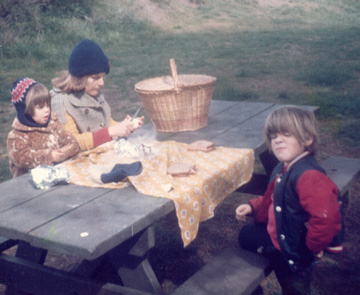 News & Tips for Parents
News & Tips for Parents
Twins Sought for Dream Study
Are you an identical twin?
Are you 18 to 60 years old?
Do you remember your dreams?
Have you ever wondered if your dreams are different because you are a twin?
If you were raised together with your twin and now are living apart AND your twin is willing to participate, you can be part of a fascinating study of dreams.
You will need to record five dreams and your twin will record five dreams without comparing or communicating about the dreams. You will receive a summary of the findings and a one hour session to interpret your dreams. All information about you and your twin will be confidential and your privacy will be protected.
Log onto www.twindreams.info or contact Margery Runyan at 970-946-0992. You will help other twins by participating. Thank you for considering this opportunity.
Glendora GATE Parent & Student Workshops
Saturday, April 26 @ 9:00am in the District Board Room, Dr. Barbara Klein, author of Raising Gifted Kids: Everything You Need to Know to Help Your Exceptional Child Thrive, will lead a workshop for students 5th-8th grade, GATE students, and parents of all GATE students. In the morning, Dr. Klein will share with 5th-8th grade students some strategies for self-talk and stress management when experiencing great intensity, and then lead an afternoon session for parents sharing those same strategies and provide a forum for discussing related social/emotional issues.
This workshop is free and open to both students and parents.
Melissa Germann, GATE Coordinator
(626) 963-1611, x370
e-mail: MGermann@glendora.k12.ca.us
#65
There are photos from Saturday's beach adventure under a new webpage: Tidepooling at Paradise Cove.
#64
Perfectionism in Psychology Today, April 2008 issue
By Hara Estroff Marano, "The Making of a Perfectionist"
http://psychologytoday.com/articles/pto-20041112-000010.html
#63
Supporting Emotional Needs of the Gifted
I am speaking about "Understanding What Calms and Triggers Emotional Intensity" on Sunday July 20 from 8:30 - 10 AM at the 25th Silver Anniversary SENG Conference in Salt Lake City, Utah!
#62
GREAT NEWS!
I will be giving a Keynote address at the 2008 Twinless Twins Conference in Toronto with the rather long title of "Twins' Trauma & Loss: How the Unique Circumstances of Identity Development Intensify the Trauma of Twin Loss." That's at 9AM at the Toronto Marriott Airport Hotel on July 10.
And I am doing a workshop Thursday from 1:00PM-2:30PM called "How To Develop Healing Strategies That Will Help Cope With Twin Loss."
On Saturday I will sign copies of my book "Not All Twins Are Alike: Psychological Profiles of Twinship" from 8:00-9:00AM.
#61
Twinless Twins
I am going to be answering questions that twins ask of me for the organization:
Email Your Twin Questions
In a continuing effort to explore ideas that our members will value, a Q & A type column will appear in The Twinless Times Magazine, which all members receive. First names will be used: Please make a note if you would like to remain anonymous. Questions can pertain to your relationship with your twin and your unique twin grief.
Dr. Barbara Klein has graciously agreed to answer questions of interest for twinless twins. Barbara is a psychologist, a twin herself, and author. One of her books Not All Twins Are Alike can be purchased through Twinless Twin's Amazon Book Store.
#60
Gifted children attract the attention of the business media!
Hana R. Alberts wrote the following article (excerpted here) for Forbes.com:
Do You Have A Gifted Child?
"Sometimes, though, identifying giftedness is as simple as pairing observation with common sense. 'The little boy who called the flowers in his garden bougainvillea,' says Dr. Barbara Klein, an educational consultant in Los Angeles and author of Raising Gifted Kids: Everything You Need to Know to Help Your Exceptional Child Thrive. 'You don't have to give the Stanford-Binet [intelligence test] to know that they are just very different children. Very special.' "
The Forbes article continues as a slide show: http://www.forbes.com/2008/01/22/solutions-education-gifted-oped-cx_hra_0123gifted_slide.html?thisSpeed=15000
More quotes:
Art, Music and Drama
"Artistic activities appeal to gifted children, who can express themselves on a canvas, in an original composition or during a skit. They may recall melodies, tell vivid stories or imitate others. 'They need to have those kinds of artistic or musical or dramatic outlets, or else they won't be happy,' says Dr. Barbara Klein. 'They are very emotionally intense children and they need an outlet to express themselves.' "
Technology
"Got an in-house computer whiz? Gifted children may learn new software without formal training, and they demonstrate a wide range of technology skills. Dr. Klein remembers a child who took apart radios in his spare time. 'Their perceptual organization is very advanced,' she says. 'They may be fascinated by that, and not as fascinated by learning to read.' A bonus: Gifted children also tend to help others with technology-related problems."
#59
Please call me today if you are an adult twin who would like to meet other twins and talk about your experiences. I am a twin and my phone number is 310-209-0515.
#58
Glendora GATE Parent Workshops
Saturday, April 26 @ 9:00am in the District Board Room, Dr. Barbara Klein, author of Raising Gifted Kids, will lead a workshop for students 5-8 grade GATE students and Parents of ALL GATE students. In the morning, Dr. Klein will share with 5-8 grade students some strategies for self-talk and stress management when experiencing great intensity, and then lead an afternoon session for parents sharing those same strategies and provide a forum for discussing related social/emotional issues.
This workshop is free and open to both students and parents.
Melissa Germann, GATE Coordinator
(626) 963-1611, x370
e-mail: MGermann@glendora.k12.ca.us